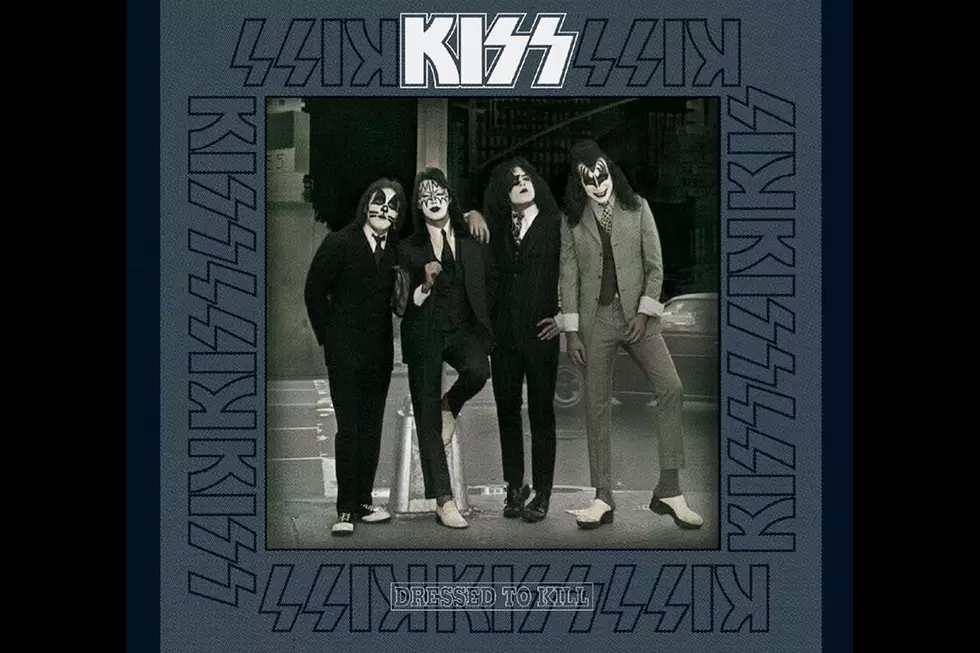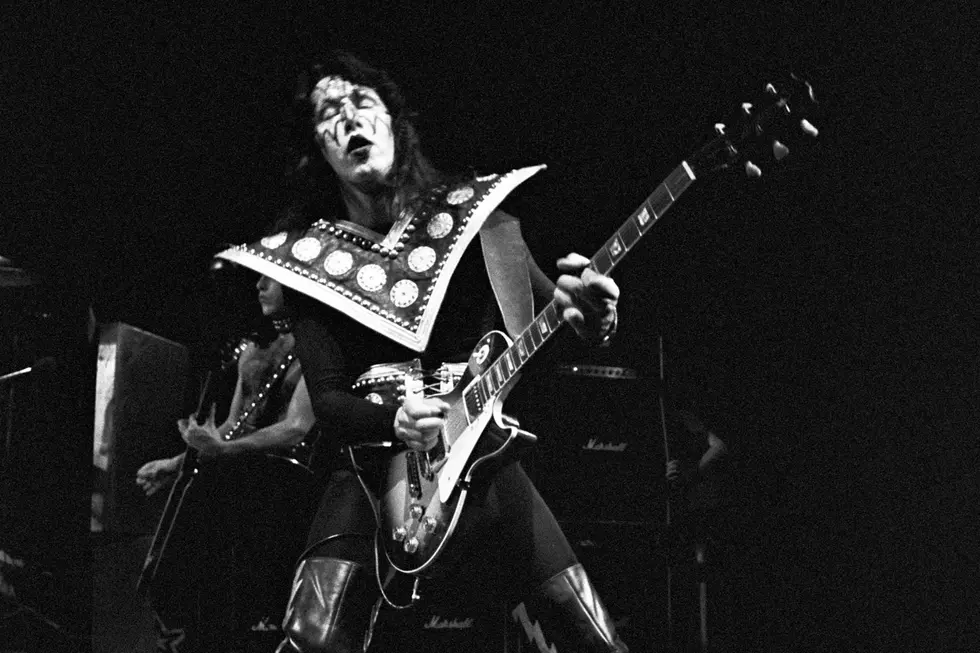
The Night Ace Frehley Saved a Blues Brothers Show
Former Kiss guitarist Ace Frehley may have risked his life a number of times with alcohol and drugs, but if it wasn't for his addictions, he never would have met comedian and Blues Brothers creator John Belushi, who eventually became a close friend.
In his 2012 book No Regrets, Frehley recalled how the pair bonded at drummer Peter Criss’ house, and how he was later able to save a Blues Brothers show when Belushi suffered an attack of self-doubt.
Space Ace recalled how he’d “just scored some really good shit” and shared it with Criss’ house guests while making wisecracks. “John seemed to be laughing at all my jokes,” he wrote. “I had been told for years that I was a funny guy, but to be making a professional comedian crack up felt even more rewarding.”
Frehley added that "there’s a strange bonding process that happens sometimes between two people when alcohol and drugs are involved. That bond was cemented that evening between me and John, and remained that way until the end. We were both famous and we both loved music and comedy, and we also enjoyed getting fucked up.”
Before long Frehley was a regular guest in Belushi’s private bar, which he owned alongside Blues Brothers colleague Dan Aykroyd. The venue was disguised as an abandoned building; they needed it because they couldn’t go out in New York City without being mobbed by fans. “Anyone driving or walking by on a Saturday night or Sunday morning might have thought it was a mob hangout, because the street would be filled with stretch limousines,” Frehley noted. “But in reality the bar was filled with the cast and guests of Saturday Night Live.”
He recalled evenings of serving as bartender, dancing on the bar and playing guitar with Belushi on drums as they invited women to strip for them. He admitted it was sheer indulgence but professed they both loved every minute.
Then during summer 1980 came a moment that Frehley said displayed Belushi’s “sensitivity and insecurity. “John wasn’t quite the egomaniac he appeared to be onstage,” the guitarist said. The incident took place halfway through a Blues Brothers show at the Palladium in New York. The band took a break after the first set, but word came from backstage that no one was allowed in the dressing room.
The promoter, Ron Delsener, told Frehley that “John didn’t want to go back out to do the second half of the show, supposedly because his voice was shot. ‘What can I do?’ I asked. Ron said, ‘Can you try talking to him? I told him you were here.’”
The guitarist recalled looking every bit the rock star, getting access to the dressing room when no one else could – including Gene Simmons and Paul Stanley, who were at the show – and taking a hotly dressed date with him.
Frehley advised Belushi to drink some tea with honey, but what concerned the guitarist more was the SNL star's “sadness and fatigue”: “‘I don’t think I can do it, Ace,’ he said. I chuckled. ‘Hey, nobody really gives a shit. Stop worrying. I can’t sing either. I just fake it most of the time, but I get out there anyway. Hell, Mick Jagger can’t sing. [Bob] Dylan can’t sing. They just kinda talk the words. … Remember, the show must go on, and you’re a professional.’ John smiled. ‘I guess.’”
The pair had a beer and then some cocaine as Belushi’s mood gradually improved. “I told John to knock ‘em dead and I’d see him after the show," Frehley recalled. "I left the dressing room smiling and informed Delsener that the show would begin shortly.”
He went on to tell of his regret at refusing to meet Belushi in the winter of 1982. The comedian was in town briefly, but Frehley was taking one of his regular breaks from partying and didn’t want to be around his friend’s bad influence at the time. The phone call was the last time they spoke: Soon afterward Belushi died of a drug overdose.
“John Belushi was a great guy and a gifted performer,” Frehley wrote. “I feel very lucky to have known him. His death was a tragedy and was the catalyst for me to clean up my act for several months afterward. … He was unique. I miss him. I think everyone does.”
Kiss Lineup Changes: A Complete Guide
More From Ultimate Classic Rock









